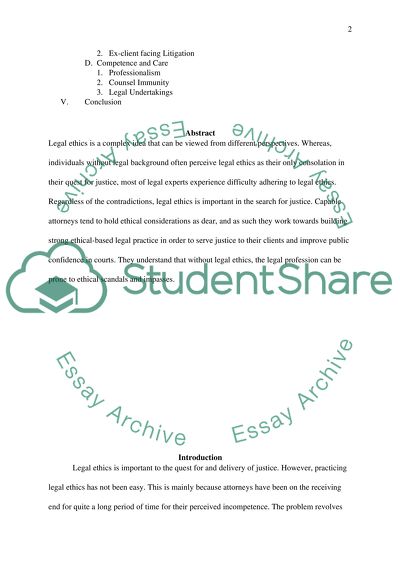Cite this document
(“Legal Ethics: Different Aspects of Lawyering Essay”, n.d.)
Legal Ethics: Different Aspects of Lawyering Essay. Retrieved from https://studentshare.org/law/1462285-5-do-lawyers-have-moral-responsibilities-as-well-as-legal-responsibilities-in-other-words-do-we-need-legal-ethics-justify-yo
Legal Ethics: Different Aspects of Lawyering Essay. Retrieved from https://studentshare.org/law/1462285-5-do-lawyers-have-moral-responsibilities-as-well-as-legal-responsibilities-in-other-words-do-we-need-legal-ethics-justify-yo
(Legal Ethics: Different Aspects of Lawyering Essay)
Legal Ethics: Different Aspects of Lawyering Essay. https://studentshare.org/law/1462285-5-do-lawyers-have-moral-responsibilities-as-well-as-legal-responsibilities-in-other-words-do-we-need-legal-ethics-justify-yo.
Legal Ethics: Different Aspects of Lawyering Essay. https://studentshare.org/law/1462285-5-do-lawyers-have-moral-responsibilities-as-well-as-legal-responsibilities-in-other-words-do-we-need-legal-ethics-justify-yo.
“Legal Ethics: Different Aspects of Lawyering Essay”, n.d. https://studentshare.org/law/1462285-5-do-lawyers-have-moral-responsibilities-as-well-as-legal-responsibilities-in-other-words-do-we-need-legal-ethics-justify-yo.


